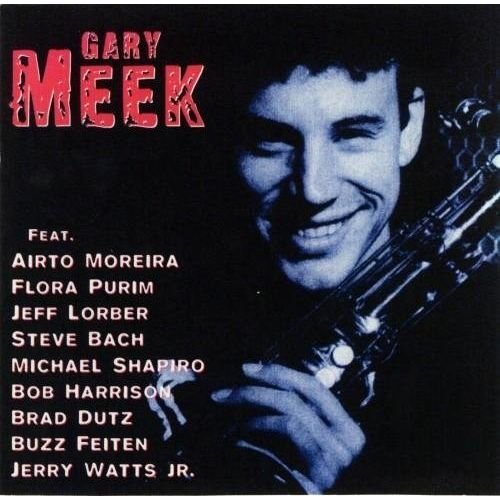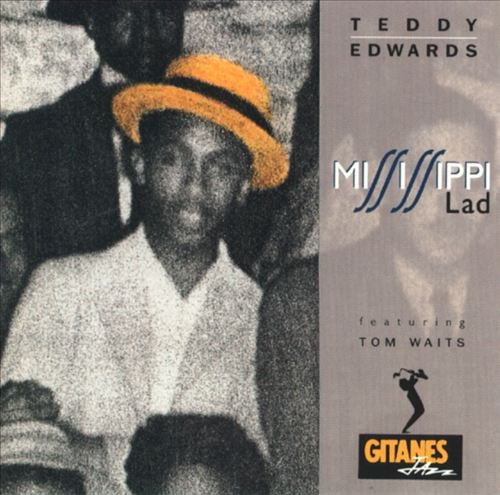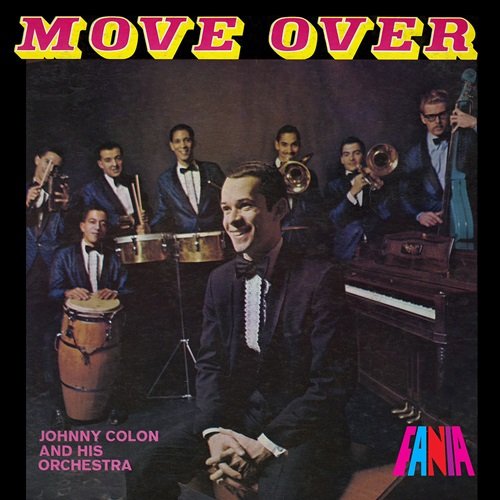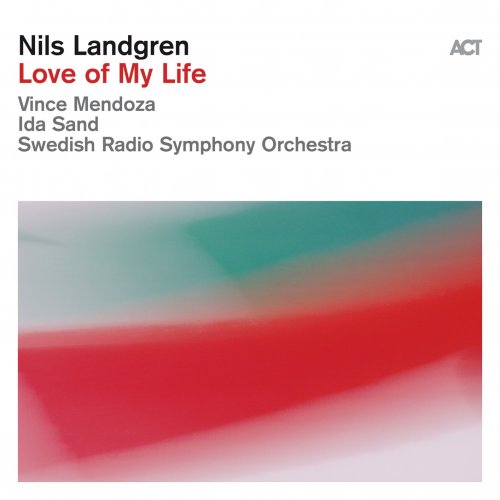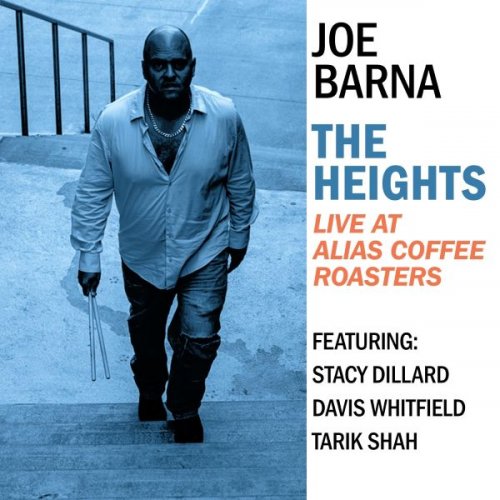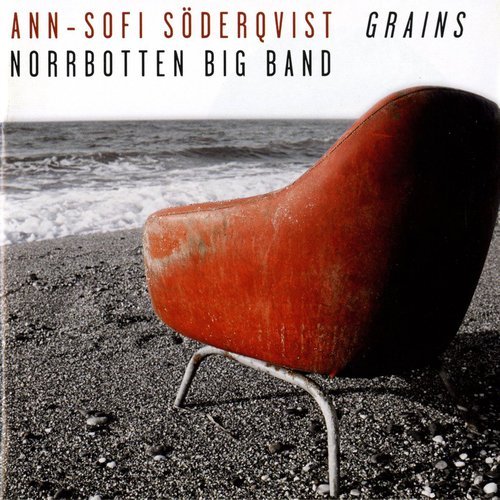Jazz At Lincoln Center Orchestra - Don't Be Afraid... The Music of Charles Mingus (2005)
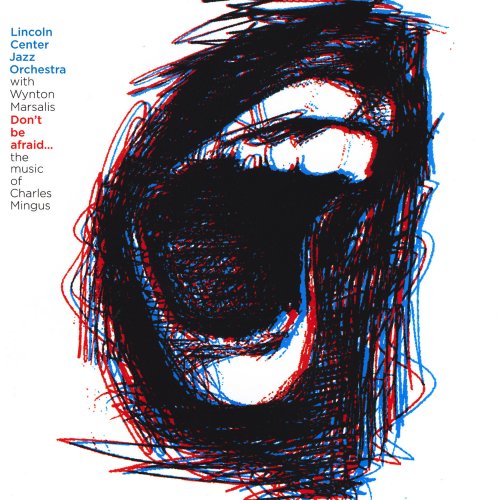
Artist: Jazz At Lincoln Center Orchestra
Title: Don't Be Afraid... The Music of Charles Mingus
Year Of Release: 2005
Label: Jazz at Lincoln Center
Genre: Jazz
Quality: FLAC (tracks) / MP3 320 Kbps
Total Time: 57:32
Total Size: 369 Mb / 146 Mb
WebSite: Album Preview
Tracklist: Title: Don't Be Afraid... The Music of Charles Mingus
Year Of Release: 2005
Label: Jazz at Lincoln Center
Genre: Jazz
Quality: FLAC (tracks) / MP3 320 Kbps
Total Time: 57:32
Total Size: 369 Mb / 146 Mb
WebSite: Album Preview
1. Dizzy Moods 7:07
2. Black Saint & The Sinner Lady (Parts 1 & 2) 13:39
3. Meditation On Integration 12:25
4. Tijuana Gift Shop 4:02
5. Los Mariachis 10:24
6. Don't Be Afraid, The Clown's Afraid Too 9:58
Personnel:
Wess Anderson: alto saxophone, sopranino saxophone
Ted Nash: alto saxophone, soprano saxophone, flute
Walter Blanding: tenor saxophone
Victor Goines: tenor saxophone, clarinet, bass clarinet
Joe Temperley: baritone saxophone, bass clarinet
Wynton Marsalis, Lew Soloff, Ryan Kisor, Marcus Printup: trumpet
Ron Westray, Vincent Gardner: trombone
Andre Hayward: trombone, tuba
Eric Lewis: piano
Carlos Henriquez: bass
Herlin Riley: drums
With the Mingus Big Band keeping the music of its namesake alive and flourishing, the question arises, is there a need for another band to canvass the same territory? Apparently the Lincoln Center Jazz Orchestra believes so, hence its newest album, Don't Be Afraid... The Music of Charles Mingus. Well, some of the music anyway, as the half-dozen songs therein barely scratch the surface of Mingus's prodigious output. On the other hand, some is better than none, and in any case, an album must be appraised for what is included, not what is omitted.
I must confess early on that I find the bulk of Mingus's works more challenging than seductive, which is perhaps as they were meant to be. Having said that, it should be noted that the LCJO under music director/trumpeter Wynton Marsalis interprets them about as well as anyone could, and the arrangements, all by trombonist Ron Westray, are splendid, on a par with anything I've yet heard from the MBB, which also knows its way around the maestro's music. One of my chief complaints is that so much of that music doesn't swing, at least not in the customary sense of the word. But it certainly can, as witness "Tijuana Gift Shop, a straight-on groover that belies Mingus's image as largely cerebral, as do parts of "Los Mariachis and "Dizzy Moods.
Alas, "Shop is the album's briefest track at 4:02, whereas more recondite works such as "Black Saint & the Sinner Lady (Parts 1 and 2) and "Meditation on Integration (at 13:39 and 12:25, respectively) clearly overstay their welcome (at least in this neighborhood), taxing one's patience while outdistancing the attention span. The easygoing "Moods is a pleasant opener with sparkling ensemble passages and engaging solos, most likely by Marsalis on trumpet and either Walter Blanding or Victor Goines on tenor (the advance copy from which I'm reviewing doesn't name soloists). It's almost a sure bet that alto Wess "Warmdaddy Anderson is featured on "Gift Shop, and that's probably Wynton soloing again with pianist Eric Lewis on "Los Mariachis.
While the music of Charles Mingus isn't for everyone, many of those who have been won over consider him a genius, which he may well have been, depending on one's definition of the term. Writer Stanley Crouch calls Don't Be Afraid a masterpiece; again, that is in the eye (and ear) of the beholder. I think it's safe to say that some listeners may echo Crouch's sentiments, while others may wonder what all the fuss is about.
And I've a hunch that's exactly what Mingus had in mind. He wasn't writing "elevator music, but music with great depth and complexity. He knew it would be well beyond the reach of the masses, but that's not why he wrote it. He did so because, like any musical genius, he had no choice. Acceptance or disapproval simply weren't part of the equation. Listen, he seems to advise, and draw your own conclusions. That's my advice too.
I must confess early on that I find the bulk of Mingus's works more challenging than seductive, which is perhaps as they were meant to be. Having said that, it should be noted that the LCJO under music director/trumpeter Wynton Marsalis interprets them about as well as anyone could, and the arrangements, all by trombonist Ron Westray, are splendid, on a par with anything I've yet heard from the MBB, which also knows its way around the maestro's music. One of my chief complaints is that so much of that music doesn't swing, at least not in the customary sense of the word. But it certainly can, as witness "Tijuana Gift Shop, a straight-on groover that belies Mingus's image as largely cerebral, as do parts of "Los Mariachis and "Dizzy Moods.
Alas, "Shop is the album's briefest track at 4:02, whereas more recondite works such as "Black Saint & the Sinner Lady (Parts 1 and 2) and "Meditation on Integration (at 13:39 and 12:25, respectively) clearly overstay their welcome (at least in this neighborhood), taxing one's patience while outdistancing the attention span. The easygoing "Moods is a pleasant opener with sparkling ensemble passages and engaging solos, most likely by Marsalis on trumpet and either Walter Blanding or Victor Goines on tenor (the advance copy from which I'm reviewing doesn't name soloists). It's almost a sure bet that alto Wess "Warmdaddy Anderson is featured on "Gift Shop, and that's probably Wynton soloing again with pianist Eric Lewis on "Los Mariachis.
While the music of Charles Mingus isn't for everyone, many of those who have been won over consider him a genius, which he may well have been, depending on one's definition of the term. Writer Stanley Crouch calls Don't Be Afraid a masterpiece; again, that is in the eye (and ear) of the beholder. I think it's safe to say that some listeners may echo Crouch's sentiments, while others may wonder what all the fuss is about.
And I've a hunch that's exactly what Mingus had in mind. He wasn't writing "elevator music, but music with great depth and complexity. He knew it would be well beyond the reach of the masses, but that's not why he wrote it. He did so because, like any musical genius, he had no choice. Acceptance or disapproval simply weren't part of the equation. Listen, he seems to advise, and draw your own conclusions. That's my advice too.
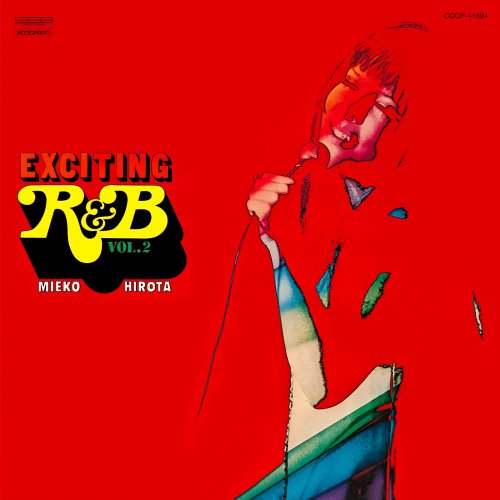
![Duval Timothy, CJ Mirra - My Father's Shadow (Original Motion Picture Soundtrack) (2026) [Hi-Res] Duval Timothy, CJ Mirra - My Father's Shadow (Original Motion Picture Soundtrack) (2026) [Hi-Res]](https://img.israbox.com/img/2026-02/08/80aewauty50xz1so2jl5bj7zq.jpg)
